Why we have failed to cure Cancer?
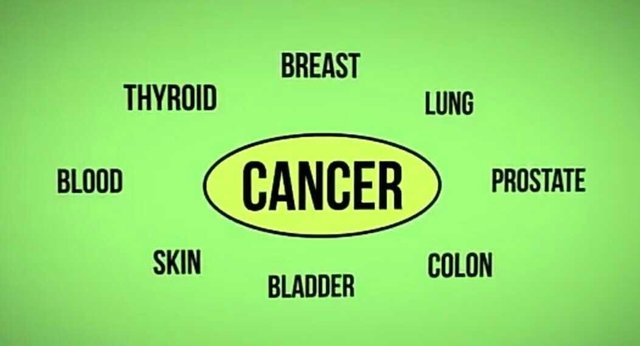 source
source
According to the American cancer society between 1/3-1/2 of Americans will develop some forms of cancer in their life time. Instead of accepting such fate scientist, doctors and the many organizations that fund their research are motivated to find a CURE, but haven't found any. A lot of drugs and treatment have been carried out but they often don't seem to work cause one person can take a cancer drug and get better but another person with "the same kind of cancer" can take the same drug and not get better.
After billions of dollars and decades of research why haven't we cured cancer? The trouble is cancers may look the same on the outside but each one develops differently in their own way and can originate in any type of tissue, so we haven't found a cure for cancer because its not a single disease, if we're going to destroy it we have to take on all of the cancers one at a time.
What is CANCER?
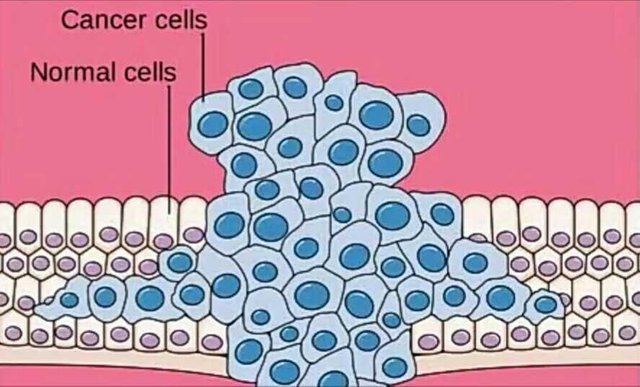 source
source
Cancer is when abnormal cells divide in an uncontrolled way. Some eventually spread into other tissues. ie the main thing cancers have in common is uncontrolled cell division and that uncontrolled growth that usually starts in a small set of your genes and no matter what triggers it you get the same result of massive cells growing out of control and then invading other tissues which isn't good for the body but under the hood each cancer works differently. It's practically a different disease every time and not every cancer would progress in the same order. Mostly its because every cancer is caused by a different set of genetic mutations.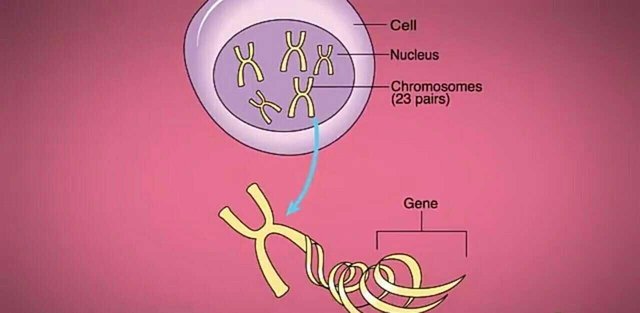 source
source
Genes consist of a sequence of DNA and each sequence is a set of chemical base called nuclear TADS that are arranged in a very specific order, together they tell the cell how to manufacture proteins. 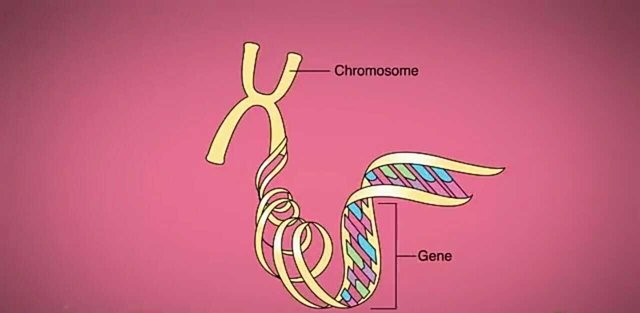 source
source
Cancer usually comes from mutations of two kinds of genes called "ONCOGENES & TUMOR SUPPRESSORS". An Oncogene starts as a normal gene that codes for proteins which signal the cell to grow and normally they spend time being dormant but just one mutation in these genes is often enough to throw it into a high gear which can't be turned off and that's were it becomes an Oncogene,
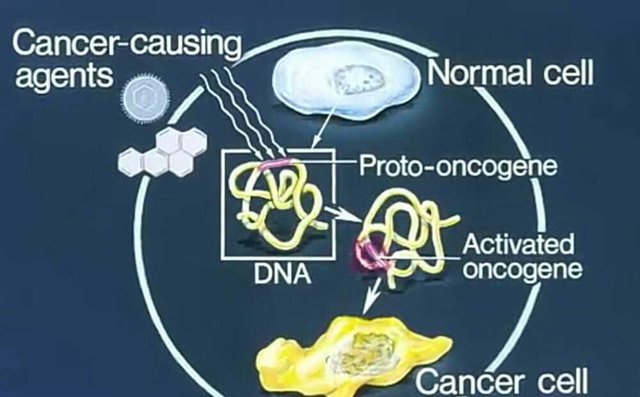 source
source
telling the cell to keep growing and dividing even when it shouldn't now that's when it gets dangerous. Some of the well known Oncogenes are " RAS & MYC", they are powerful growth genes that show up in many kinds of cancer. A lot of the times it's the "RAS" gene that gets mutated which changes the shape of the protein that it makes then the altered protein gets stuck in a position that always sends a signal for the cell to grow whether it should or not and with it's new shape the other proteins yeah the ones that usually deactivate the "RAS" protein before things get out of hand can't recognize what they should be targeting and switch it off. So the cell never stops getting the signal to grow and divide and it starts forming a tumor.
Tumor Suppressor's are another type of cancer causing gene and it's actually the opposite of Oncogene. "Tumor Suppressors" stop a cell from growing unless the condition is right. As other genes every cell in the body has two copies of "Tumor Suppressors" so they are harder to put out of commission even when one copy gets mutated the other one still works. But yeah cancer has the tendency of finding it's way around all kinds of Safeguard's. Often the "Tumor Suppressors" gets mutated on one Chromosome to the point of not working at all then the cell just happens to loose the part of DNA containing the other copy. With one copy mutated and the other removed there is no "Tumor Suppressor" left to restrain the cells growth and the mutations could happen in a number of ways. With so many possible combinations we can't just create a drug to keep "Tumor Suppressors" from mutating which is where things become very complicating because just one mutated gene isn't usually enough to cause cancer it takes up to five(5) or six(6) genetic changes before normal human cells become truly cancerous then as tumors get bigger more genes start to mutate and some of the mutations make the cancer more aggressive.
There can be thousands of possible combinations of mutations going on in a cell which is partly why a drug might not work for some patients even when proven effective for that type of cancer. So, every single tumor will follow a different genetic path which makes it hard for doctors to know what to target. So how will you kill a tumor when you don't show which of the potential problematic gene that's making it grow? The most obvious way to treat a tumor is to resect it but not always possible cause even when done it grows back. Another method is to send in a treatment that's very toxic which will attack all rapidly dividing cells in the human body instead of just the cancer and this treatments are "CHEMOTHERAPY" and specifically IONIZING RADIATION ". The radiation can tear down DNA. Now once the cancer cells DNA is mingled beyond recognition it can no longer make copies and divide. 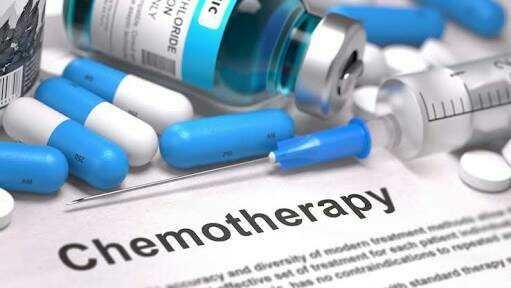 source
source
Chemotherapy works in a few different ways but because they circulate the blood stream they tend to affect the whole body. Some types of Chemo try to imitate one of the building blocks of DNA so that cells try to incorporate them into their chromosomes. Other kinds target the cells cyto skeleton,
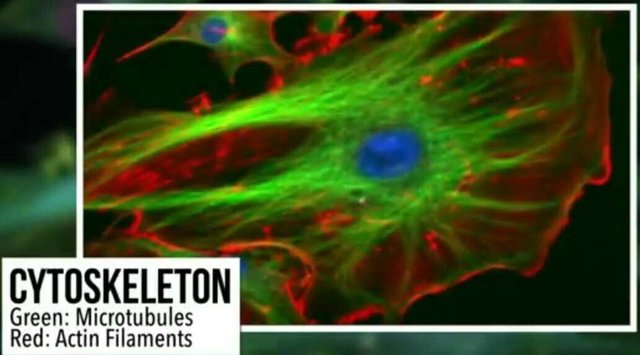 source
source
it's internal frame works so that it can't pull itself apart when it divides. These kinds of Chemo can't stop cancer cells from dividing but there are a lot of healthy cells in the body that needs to divide. Hair follicles needs to produce hair and the lining of the gut needs to constantly renew itself against harsh stomach acids that's why Chemo causes hair loss and other side effects. 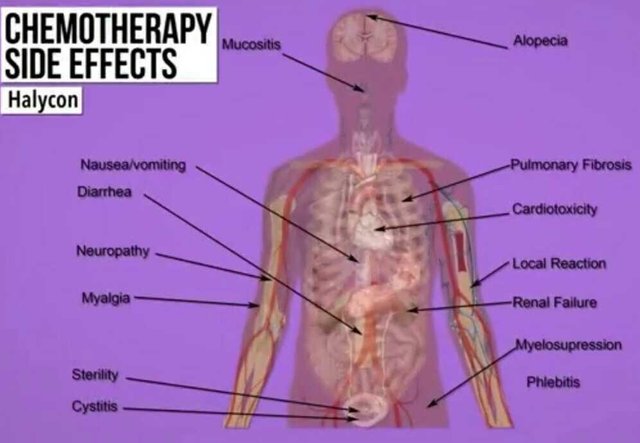 source
source
It can work but really harsh Chemo I mean but fortunately there are new alternatives, one of the newest is "Genome Sequencing". one of the weapons biologist have been refining for decades to join the battle against cancer which is faster and cheaper. Within a matter of days scientists can now sequence lots of different types of cancer cells and figure out exactly where and how the genes are mutating. Using that information they can predict what drug would be effective against those Cancers. Its safer cause we can develop a much more refined way to treat a certain cancer and a certain person through personalised medicine. Two major projects have taken a bigger step towards this new approach;
(1) Cancer Genome Project.
(2) Cancer Cell Line Encyclopedia.
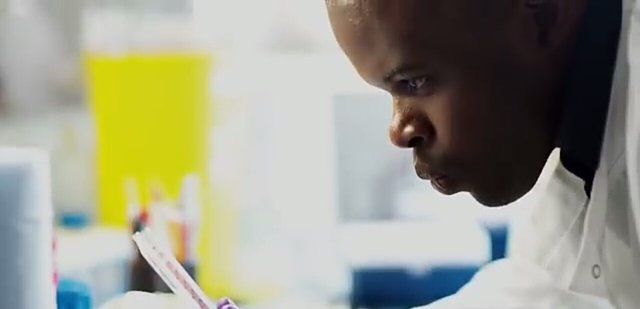 source
source
They have tested many kinds of cancer cells and drugs on a large scale and on both cases researchers have confirmed that certain drugs are more effective against particular types of cancer they also found that they could predict the effectiveness of a drug based on the mutations that they find in a particular set of cancer cells. So choosing drugs for cancer treatment doesn't have to be difficult anymore ie in theory. Now there is a problem, one study compared the result of the cancer genome project to the cancer cell line encyclopedia and found that they came to a different conclusion alarmingly often. When both groups treated the same cancer cells with the same drugs in a lab they got different results even when the cells they used were identical they would sometimes respond differently to the exact same drugs even when they agreed about the drugs they disagreed about the dosage effective. That's why we wouldn't count on personalised medicine to work until scientist
come up with more effective ways to test these drugs and figure out how to use them in people. Well that's the most promising lead we have in the fight against cancer, so yes we haven't found one cure for Cancer yet but that's kind of a question wrongly asked, there is no cancer to cure but there are lots of cancers we need to cure. Advances in things like DNA sequencing mean that even though there are many cance treatments as there are cancers which is a good news.
If there's any question pls ask am here to assist. On my next post we would be looking at "LYMPHOMA" cancer disease.
Thanks for taking your time to read my post pls comment below.
References
1.https://www.sciencedirect.com/science/article/pii/S0092867411001279
2.https://www.sciencedirect.com/science/article/pii/S0092867400816839
3.https://www.nature.com/news/technology-the-1-000-genome-1.14901
5.http://www.hindawi.com/journals/nj
6.https://www.molecular-cancer.com
7.https://www.illumina.com/systems/sequencing-platforms/hiseq-x.html
8.https://www.cancerresearchuk.org/about-cancer/cancer-in-general/treatment/chemotherapy/side-effects